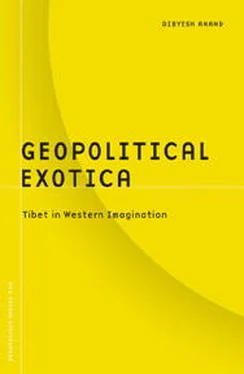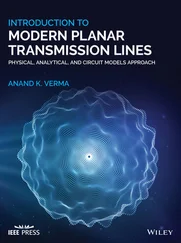[4]Apart from Tibet and the West, the main actor involved is China. In this book, the focus of research is on Western representations and their impact on the identity of Tibet and Tibetans. This is done as an opening gesture without denying the importance of other aspects, including the Chinese representations. Analysis of Chinese representations of Tibet deserves more space than can be afforded within this study.
Knowledge production about Tibet, especially since the mid-twentieth century when the Chinese communists consolidated their political control, is no longer the preserve of Europeans. Very much in the tradition of Orientalist scholarship and British imperialist writings, the manufacturing of scholarly truths about Tibet within the Chinese academies is implicated in the service of the political regime. Chinese representations of Tibetans as essentially backward, primitive, and barbaric are witnessed not only at the popular level (Wei Jingsheng 1998) but more dangerously within state discourse too (see Heberer 2001; Hillman and Henfry 2006; Kolas 1998; Makley 1997, 1999; Shakya 2002; for Han Chinese representations of minorities in general, see Blum 2000, 2002; Dikotter 1992; Gladney 1994, 2004). Analysis of the Chinese representations of Tibet will show how Tibetans, like most of the non-Han Chinese, are seen as an exotic but backward people requiring Chinese leadership to help them progress. The notion of Tibet's lack of development due to "cultural backwardness" has been very strong in Chinese state policies since the 1951 Seventeen Point Agreement (see Shan 2001; Zugui and Zuji 1996). Development as a rationale for Chinese control is also found in the writings of those sympathetic to the communist regime (see Gelder and Gelder 1964; Suyin 1977) and of many Chinese dissidents (see Xu Mingxu 2000) and creative intellectuals (for exceptions see Cao Changching and Seymour 1998; Yue 2004). Unfortunately this has resonance with the self-justificatory tone of the civilizing mission within Western imperialism. This patronizing tone is also evident in Wang Lixiong, who in the name of recognizing Tibetan agency tends to erase it by tracing the roots of the "intense religiosity" of the Tibetans to "the terrors of their natural environment" (2002, 91).
[5]For exceptions, see Agathangelou 2004; Chowdhry and Nair 2002; Darby 1997, 1998; Darby and Paolini 1994; Krishna 1993, 1999; Ling 2002; Muppidi 2004; Paolini 1999; Ramakrishnan 1999.
[6]Amin rightly argues that though Eurocentrism is anti-universalist, "it does present itself as universalist, for it claims that imitation of the Western model by all peoples is the only solution to the challenges of our time" (1988, vii).
[7]It is not surprising that Brown et al. (2002) in International Relations in Political Thought focus exclusively on the Western canon. The excuse they offer is symptomatic of IR in general. For instance, they argue that the relevant criteria for the canon can change on the basis of "current fashions" (such as the current criticism that the canon usually consists of white male Europeans), but this should not deny the "fact" that some "thinkers clearly have produced more significant work than others" (3) (not surprisingly, these are the same as the canonical thinkers). This seems to be a dismissive gesture of relegating those who challenge the Eurocentrism and misogyny of the Western canon as "current fashion."
Brown et al. go on to argue that the "modern global international order developed out of the European states-system, which emerged in the sixteenth and seventeenth century CE from the wreckage of the medieval order which was constructed on the ruins of the Roman empire, in turn the product of the Roman republic and the inheritor of the thought of classical Greece" (14). This buys into the dominant autobiography of modern Western thinking. It misses the crucial constitutive role of the "rest of the world" in the change from the medieval to the modern period. Ironically, the editors stop at the gate of classical Greeks-once again ignoring the question of where the Greeks came from. In such stories, classical Greeks seem to have descended from "heaven," without "impure" influences of nearby cultures, especially the Egyptians (cf. Bernal 1987, 1991). My argument is not against a compilation of the writings of Western political thinkers but against passing it off as global/international thought.
[8]The justification Rosenau provides for ignoring "Third world analysts" is "space limitations." But this does not lead him to title the book as Western Voices instead of Global Voices. On the other hand, Waever (1998) is conscious of his noninvestigation of non-Western cases and does not conflate "American and European developments in international relations" with wider global developments.
[9]Sylvester not only includes a "Western feminist (Westfem)" but also ventriloquizes for "Her Third World Alter Ego/Identity (Tsitsi)" (Sylvester 1993; see also Agathangelou and Ling 2004).
[10]Some argue that since IR as a discipline is closely linked with the rise of the United States as a "superpower" and because of intellectual predisposition, political circumstances, and institutional opportunities, it is mainly an "American social science" (Hoffman 1977; see also Crawford and Jar-vis 2000; Smith 2000). Hence a better term might be "Americentrism." However, Eurocentrism's main feature has been the explaining away of parochialism (European Enlightenment thinking) as superior, progressive, and hence universal. Americentrism does not challenge this. Instead, it reinforces the powerful myth that the West is the best.
[11]This term, formerly reserved for communist-ruled Eastern Europe and the USSR, is often used interchangeably for the South following the end of communist regimes there. This goes back to an older distinction usually made in European thought between the West and the East. For an interesting analysis of the use of the "East" as the Other in the European identity formation, see Neumann 1999.
[12]See Ashcroft et al. 1989, 1995; Barker et al. 1994; Chambers and Curtis 1996; Chaturvedi 2000; Gandhi 1998; Hall 1996a; Loomba 1998; Mongia 1996; Moore-Gilbert 1997; Moore-Gilbert et al. 1997; Prakash 1995; Williams and Childs 1997; Young 1990.
[13]Though within IR theory significant debates have taken place, including the third debate between "rationalism" and "reflectivism," as Smith points out, the wider discipline of IR "is far more realist, far more state-centric and far more unquestioning of the dominance of realism and positivism than is the case within IR theory" (2000, 379).
[14]For a different view on imperialism and IR, see Long and Schmidt 2005.
[15]At an institutional level, the unequal relations are exemplified in almost every international body. One of the best examples, of course, is the UN Security Council and its five permanent members with veto power. Grovogui highlights two paradoxes of decolonization. First, only the rights sanctioned by the former colonialists were accorded to the colonized, regardless of the needs and demands of the latter. Second, "the rules and procedures of decolonization were determined and controlled by the former colonial powers to effect specific outcomes" (1996, 6).
[16]Some writers put the blame for U.S. interventions in the third world on the third world itself. For instance, Snyder (1999), in his analysis of U.S. relations with Cuba, Iran, Nicaragua, and Zimbabwe, argues that it is their provocation that leads to a U.S. reaction. It reflects the phenomenon of blaming the victims and absolving the victimizer (for interesting views on this phenomenon as witnessed in the case of the Palestinian question, see Said and Hitchens 1988).
[17]One interesting divide within the discipline is between those who draw upon poststructuralist thought, represented by the so- called holy trinity (Moore-Gilbert 1997) of postcolonial theory-Edward Said, Homi Bhabha, and Gayatri Spivak-and those who consider poststructuralism to be a retrogressive move that ignores the material deprivation of the peoples in the third world (see Ahmad 1994; Parry 1996; Shohat 1992). For a range of views on the relationship between postcolonialism and poststructural-ism, see Adam and Tiffin 1991.
Читать дальше












